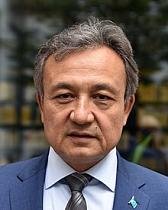Eye Specialists Say They're Out of Work
Did you know that a substantial number of eye surgeons are unable to find work in their chosen field, despite the many patients who need their services?
The wait lists for eye surgery – along with all the problems that result from poor vision like increased incidences of hip fractures, depression, and early nursing home admissions – are a serious concern, say observers in this field, adding that it must be solved with adequate funding, otherwise the eye health of the Baby Boom population will be out of luck.
Take a look at this case history to explain the urgency: When ophthalmologist, Dr. Netan Choudhry began his education, there was not a single worry in his mind regarding his future employment prospects.
Ophthalmologists are fully trained medical doctors or “Eye MDs†who, after completing medical school pursue an additional five years of training to specialize in surgical care of the eye. Once their 14-year education is complete, ophthalmologists continue on to work in the diagnosis, and medical and surgical treatment of eye disorders.
“With all the time, effort, and expense that go into a medical education, I doubt many of us anticipated not being able to practice in our trained discipline,†says Choudhry.
A 2013 report penned by the Royal College of Physicians and Surgeons of Canada (RCPSC) investigated post graduate employment across all physician specialties and found that one in six specialist graduates were either unemployed or under-employed, with just over 43% of ophthalmology graduates reporting this situation. The report suggests that the problem is due in part to a lack of operating room time. Even though there are eye MDs available to help patients with vision problems, a shortage of operating room time for eye surgeons leads to increased wait lists.
What impact will this have on our health security in Ontario?
In May 2013, the Provincial Vision Strategy Task Force published a report stating that over the next decade there will be a projected increase in the surgical demands per ophthalmologist. In fact, it is projected that there will be a 34% increase in demand for general ophthalmology surgeries (like cataracts) and a whopping 44% increase per physician in specialty ophthalmology surgeries, such as retina, glaucoma, and cornea. The report went on to state, “this is not realistic from a patient safety or physician workload perspective and new human resources strategies for ophthalmology are required.â€
The RCPSC report also warns that this situation, combined with a looming doctor shortage in the United States, could lead to a serious “brain drainâ€, where our newly trained doctors head south for employment opportunities.
When asked if he would consider leaving Ontario, Choudhry shared that he has considered it. “Several Canadian graduates who have been unable to find operating resources have accepted positions in the U.S.â€
The solution he says is immediate increased funding directed to
new graduates ready to provide services to safeguard the health of our eye care.
Without government allocated resources, says Choudhry, young eye surgeons will be unable to retain their surgical skills, potentially creating a generation of non-surgical ophthalmologists. In an attempt to maintain his surgical skills, the doctor says he is currently subsidizing his patient surgeries out of his own pocket, which is “unsustainable in the long-run.â€
“This is urgent and yet I don't think there is an immediate 'cure-all' for the situation,†he continues. “One of the problems appears to be under-funding in the health system for new graduates. The Royal College of Physicians & Surgeons of Ontario, the Canadian Medical Association and our Ontario Vision Strategy Task Force have all identified the need for new resources for young surgeons, yet the allocation of funds is at a standstill. It is truly unfortunate to invest significant resources to graduate such highly skilled and qualified physicians and then not make use of their skills. Patients can make a difference, however, if they let their member of provincial parliament know that we need to set aside funding for new physicians when they graduate, or we will risk losing their skills when we need them most.â€
Comments
There are 0 comments on this post














